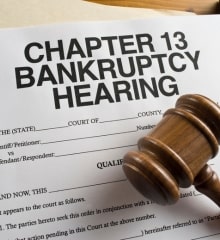
Documents Needed to File Chapter 7 Bankruptcy: Complete Guide
When debt starts closing in, most people look for a way to breathe again. For many, Chapter 7 bankruptcy becomes that reset button. It wipes out most unsecured debts and lets you start fresh. But before that can happen, you’ll have to prove to the court what your financial picture really looks like. That means paperwork. A lot of it. The good news is that once you gather the right forms, the process moves much faster........................
Read More
Debt Management Vs Debt Settlement: Pros, Cons And Key Differences Explained
Many people who are overwhelmed by debt are curious about the pros and cons of debt management vs debt settlement. Both options can offer some measure of debt relief, but each has unique advantages and disadvantages.What is the difference between debt management vs debt settlement? The goal of debt settlement is to negotiate settlements with your creditors that are significantly less than your total debt. This approach usually involves a company .......................
Read More
Can My Bank Account Be Garnished Without Notice?
In some cases, a creditor can garnish your bank account without providing advance notice. However, if your bank account is garnished, your bank will notify you after the order is received and your account is frozen. The bank must comply with the court's order before it notifies you, meaning your funds will be inaccessible when you receive the notice. You will receive a notice with details on your right to claim exemptions and contest.......................
Read More
How Long Does A Chapter 13 Stay On Your Credit Report?
Many people who are considering Chapter 13 bankruptcy wonder how long it will stay on their credit report. The short answer is seven years from the original filing date. However, it’s important to remember that the negative impact of the Chapter 13 filing can decrease over time. What happens to your score when Chapter 13 bankruptcy ends? Your bankruptcy ends once your eligible debts are discharged at the completion of your.......................
Read More
Common Questions About Credit Score After Bankruptcy
People who file bankruptcy are often concerned about their credit scores. It’s important to remember that your credit score is not permanent and with consistent effort, you can improve your score. Time will pass, and if you have a plan and are mindful about credit and debt following bankruptcy you can rebuild your credit score after bankruptcy. What will my credit score be after bankruptcy? Many people who file.......................
Read More
Can I File Bankruptcy Without A Lawyer?
People sometimes think if they can’t afford to make their monthly payments, they can’t afford a bankruptcy attorney. However, this most often is not the case, and it’s important to understand the pros and cons before trying to file bankruptcy yourself. What does filing bankruptcy without a lawyer actually mean? Many people know it is possible to file bankruptcy without an attorney, but may not fully.......................
Read More
What Is Secured Debt? Definition And How It Differs from Unsecured Debt
If you are considering taking out new debt or struggling to manage your existing debt, you may be wondering what the difference is between secured and unsecured debt. Knowing the difference between secured and unsecured debt can help you protect your assets and your family if you are short on cash. What is secured debt and how does it work? Simply put, secured debt refers to the money.......................
Read More
How Long Does The Repossession Process Take?
Understanding how long the repossession process takes is critical to preventing it or mitigating the damages if your vehicle is repossessed. If you are worried about repossession, you should know that a repossession can happen faster than most people think. Once your car is repossessed, the clock is ticking, and you’ll need to act quickly.Car repossession process: Meaning If you are in danger of having your car repossessed, you are rightfully worried about what’s going to happen. You’re likely wondering exactly how long the......................
Read More
A Record Surge In Student Loan Delinquency: What It Means, And What You Can Do About It
In a recent Bloomberg article published August 5, 2025, the economic alarm bells started ringing loud and clear: more Americans are behind on their student loans than at any time in over two decades. In the second quarter of 2025 alone, 12.9% of all student loans became 90 days or more delinquent - a record high since the New York Federal Reserve began tracking the data 21 years ago.......................
Read More
How Much Does It Cost to File Chapter 13 in Texas?
If you are considering Chapter 13 bankruptcy in Texas, you may be curious how much it costs to file. Many people are worried they cannot afford to file bankruptcy and while there are several fees associated with filing, most fees can be paid in installments or even included in your court-approved repayment plan. Chapter 13 bankruptcy: Texas specifics Chapter 13 bankruptcy is governed by federal and state law. It’s important to know that bankruptcy varies from state to state. In Texas, there are several important things you should know.......................
Read More